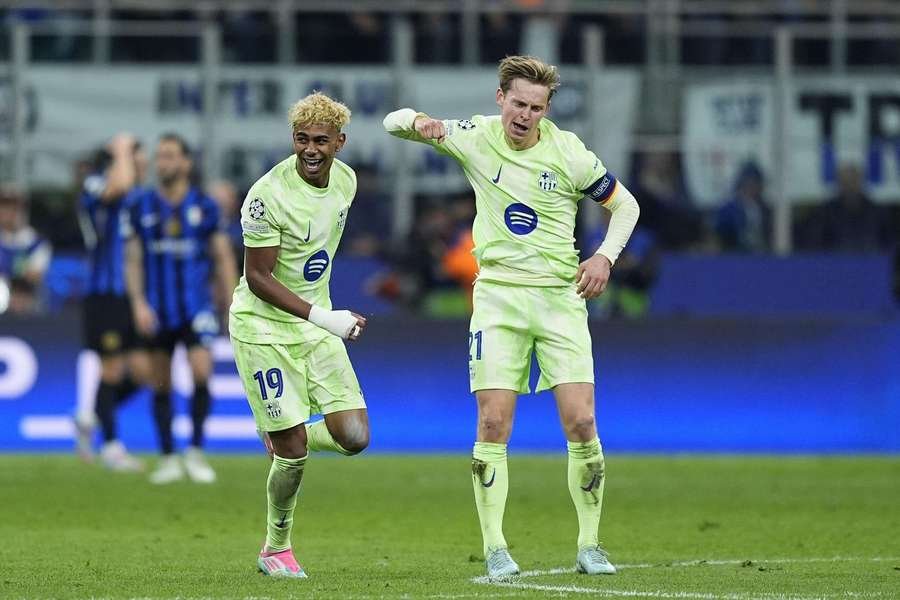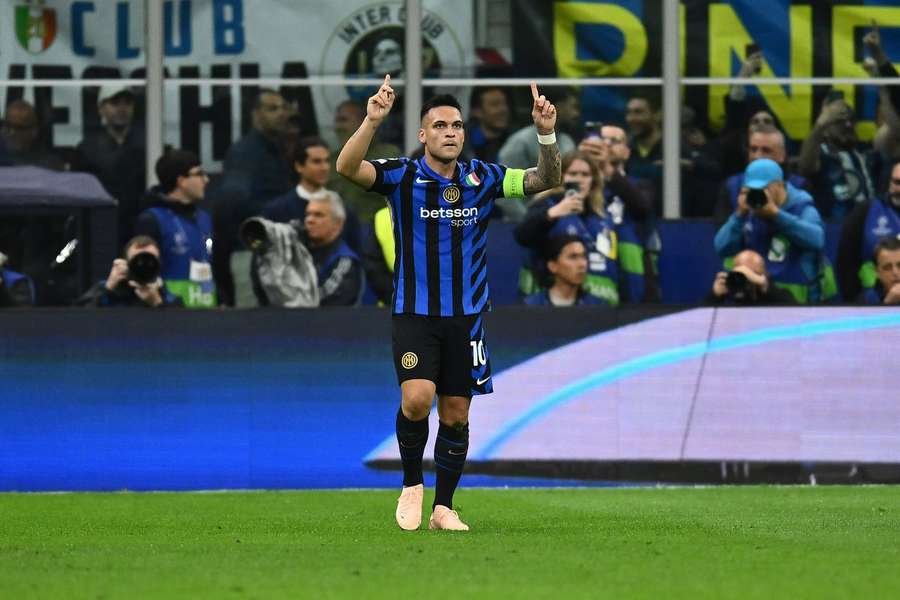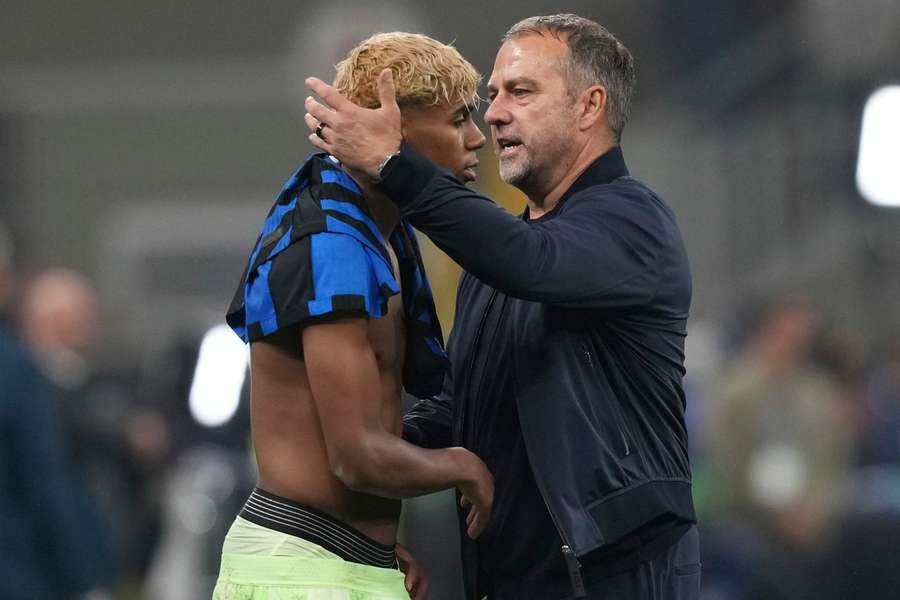Leading up to their clash with Internazionale, it would have been understandable if Barcelona were a bit apprehensive.
Before the Champions League semi-final second leg on Tuesday night, the Catalan club had only managed one victory in their last six away matches in the competition against Inter (D3 L2), the sole success being a 2-1 win back in December 2019.
The Nerazzurri were on a remarkable run, having gone unbeaten in their last 15 home outings in the Champions League (W12 D3). This streak marked their best home unbeaten record in major European competitions since their impressive run of 27 matches from 1980 to 1987. Additionally, they had triumphed in nine of their last 11 home semi-final encounters in Europe (D1 L1).
Goals seem inevitable at San Siro
Moreover, Barcelona’s performance in Italy wasn’t particularly encouraging, with just five wins in 24 away matches (21%), the lowest win percentage for them in any country outside Spain in the competition.
Given the scoring history, including a 3-3 draw in their last two face-offs (one in October 2022 and the first leg of the current season), goals were almost a certainty. Barcelona had also netted 40 goals in this season’s competition — the highest by a team in a single season since Hansi Flick’s Bayern Munich in 2019/20 (43).

This 18th major European encounter also highlights that only Bayern Munich vs Real Madrid (28), Juventus vs Real Madrid (21), and Inter vs Real Madrid (19) have faced each other more frequently in history.
Barcelona’s rising star, Lamine Yamal, was looked to as the key player to guide them towards a potential sixth final. His remarkable statistics — 44 shots, 19 of which were on target, and 78 dribbles — were already the highest recorded by a teenager in a season since 2003/04, even before kick-off at San Siro.
The anticipation was palpable for another thrilling contest…
Barca’s early approach yielded little in the first half
Although Inter seemed more aggressive at the onset, it was Barcelona who dictated the pace, boasting 69.4% possession in the first 15 minutes.
This dominance was rendered futile when Denzel Dumfries assisted Lautaro Martinez to score the opener in the 21st minute.
Martinez’s ninth goal in this season’s competition marked a new record for any Internazionale player in a single Champions League campaign, surpassing Samuel Eto’o’s eight in 2011. Notably, Inter’s record stands at W9, D1, L0 when scoring first in the 2024/25 UCL.

A controversial penalty awarded to Inter just before half-time was their seventh of the current Champions League campaign, the highest for any team this season. Hakan Calhanoglu’s converted penalty marked the 12th first-half goal conceded by Barcelona under Hansi Flick in just 14 UCL matches this season, trailing only Feyenoord (13) and PSV (13) in terms of defensive lapses.
Despite matching Inter with 15 touches in the opposition box, and recording six shots — only two fewer than their rivals — the opening 45 minutes did not yield positive results for the Catalans.
Both teams had nine dribbles, and the success rate of 44.4% was identical, leading to a sense of disappointment for Flick as his side, controlling 67.5% possession and achieving an 86.8% passing accuracy by the break, were unable to convert this into goals.
A remarkable comeback falls short
As the clock hit the hour mark, Barcelona pulled themselves back into contention thanks to a sensational volley from Eric Garcia, followed by a soaring header from Dani Olmo, who hadn’t scored in the UCL since a match against Brest on 26 November.
With 44.1% of the action occurring in Inter’s half during the opening 15 minutes of the second period, and a possession rate of 75.2% for Barcelona during that time, it was evident that the tide had turned in their favour.
Raphinha capitalised on a fortunate rebound, scoring his 13th goal in the 24/25 Champions League (the highest of any player), and many would have anticipated yet another breathtaking comeback for Barca.
Frenkie de Jong registered an impressive total of 125 passes, and Lamine Yamal had 9 shots — both leading among Barcelona players in the competition this season. Achieving such statistics against an Inter side known for their staunch defence was commendable, yet it ultimately slipped through their fingers.
Goals from Francesco Acerbi, at 37 years and 85 days the second-oldest player ever to score in a UCL semi-final (behind Ryan Giggs), and another from Davide Frattesi sealed Inter’s berth in the final, making this the joint highest-scoring semi-final tie in Champions League history (alongside Liverpool’s 7-6 win over Roma in 2017/18).
A semi-final that was overwhelmingly in Barca’s favour in many respects
This marks the eighth time that Barcelona has been eliminated at the semi-final stage, a record matched only by Real Madrid. Even more impressive, their 43 goals scored in the competition is only surpassed by their own tally of 45 in the 1999/00 season.
If Hansi Flick is seeking reasons for his team’s failure to reach the final, conceding 24 goals — the most ever in a Champions League campaign — is certainly a significant starting point.

Despite being slightly better in certain areas, such as tackles attempted, tackles won, and interceptions, Barcelona excelled overall in nearly every other measure during the match.
Stats indicating possession (71.2% to 28.8%) and total passes (772 to 313) were so overwhelmingly in Barcelona’s favour that Flick must surely be left questioning how his side, so valiant in both legs of the semi-final, could still find themselves on the losing end.
For the neutral observer, this two-legged tie will undoubtedly be remembered as one of the most thrilling in Champions League history.

Compiled by SportArena.com.au.
Fanpage: SportArena.com.au.
LiveScore – Live Sports Results & Odds.




